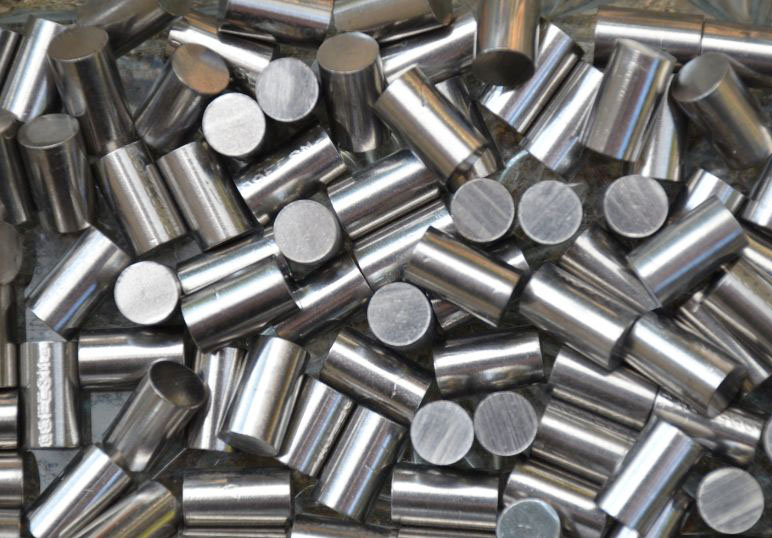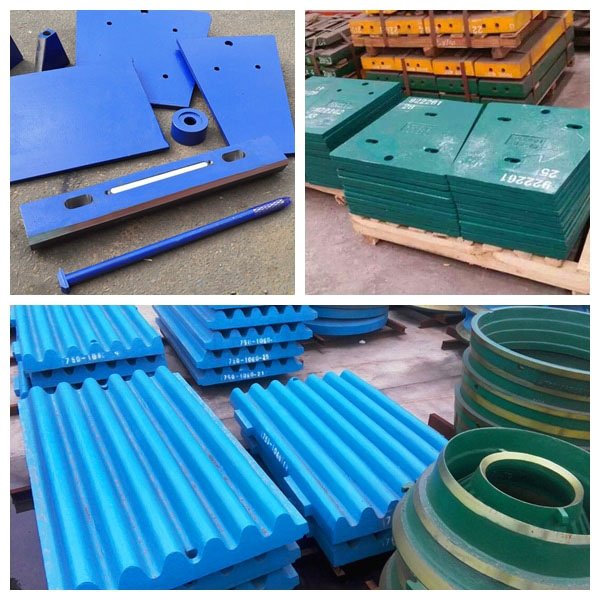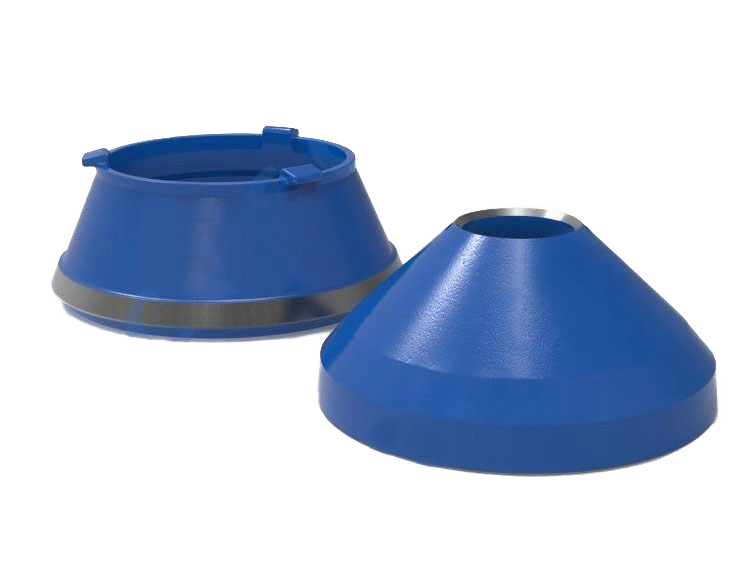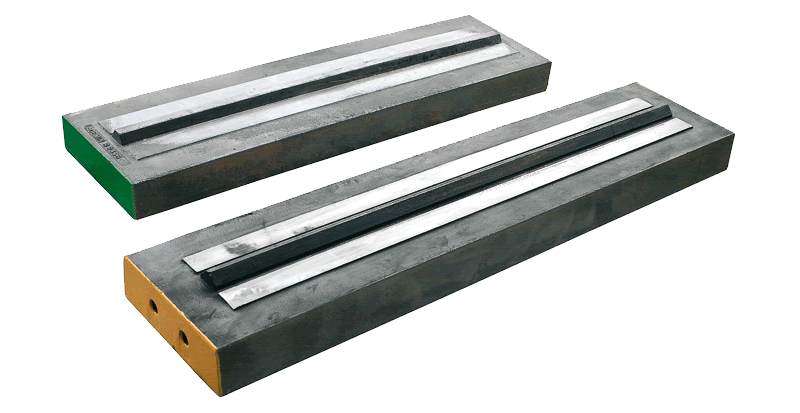
Premium Alloy Steel Options for Your Crusher Wear Parts
In industries like mining, quarrying, recycling, and construction, crusher wear parts must withstand extreme abrasion and impact to ensure consistent production. Premium alloy steels offer a powerful combination of toughness, strength, and wear resistance—making them ideal for jaw plates, cone mantles, blow bars, hammers and liners.
Choosing the proper alloy steel can significantly reduce downtime, extend wear life, and improve overall operational efficiency. Below, we explore the top alloy options, their material composition, performance profiles, and application suitability.

High Manganese Steel (Mn12 / Mn14 / Mn18 / Mn22)
Also known as Hadfield steel, this alloy contains 11–14% manganese and a comparable carbon level (~1%), forming an austenitic microstructure that work-hardens under impact, dramatically increasing surface hardness during use. Starting at approximately 200 HVH (~20 HRC), the hardness can rise to 500 HV or more in operation
Advantages:
Exceptional impact toughness and ductility
Hardened surface under load that resists abrasion
Self‑healing microstructure avoids catastrophic failure
Typical Use:
Jaw plates, cone mantles, cheek plates, gyratory liners
Best for primary crushing where heavy impact strikes
Trade‑offs:
Lower abrasion resistance compared to high‑chrome materials
Frequent maintenance may be required in abrasive environments

High Chromium Iron / High Chrome Alloy Steel (Cr15–Cr26)
These alloys contain 15–30% chromium, with higher carbon to create hard chromium carbide phases. The resulting hardness commonly reaches 58–65 HRC, offering outstanding wear resistance in abrasive but low-impact settings
Advantages:
Very high resistance to abrasive wear
Longer service life in secondary and tertiary crushing stages
Excellent for sharp‑edged or silica‑rich feed materials
Limitations:
More brittle and less tolerant to impact loads
Can fracture under tramp metal or oversized rocks

Martensitic Alloy Steel
This class of alloy steel often combines moderate chromium, molybdenum, or nickel with rapid quenching to create a martensitic microstructure. Typical hardness ranges from 44 to 57 HRC and impact strength from 100–300 J/cm²—positioning it between manganese and chrome steels
Advantages:
Balanced wear resistance and impact toughness
Better fracture resistance than high‑chrome irons
Applications:
Blow bars in impact crushers
Hammers in hammer crushers
Areas with moderate abrasion and occasional shock loading
Carbide-Reinforced Alloy Steel (TIC Inserts, Ceramic Composite)
For highly abrasive environments, TiC-reinforced or ceramic‑embedded alloy steels are used. These inserts deliver superior hardness (above 85 HRC) and can extend lifespan up to 2–3× compared to standard alloys.
Advantages:
Exceptional wear resistance on abrasive rock
Significantly longer wear life, minimizing downtime
Applications:
Jaw plates, cone liners, blow bars in silica-rich or hard rock crushing
Ideal for high-volume continuous operations
Considerations:
Higher upfront cost, but lower cost-per-ton over lifecycle
5. Hybrid Alloy Strategies (Layered Designs, Mixed Use)
Combining alloys strategically can optimize both performance and cost. For instance, using tungsten carbide only in high-wear zones, while retaining manganese steel for structure reduces cost while capturing key wear benefits. Hybrid part designs may deliver 70% of carbide benefits for 30% of cost.
Performance & Lifespan Comparison
| Material / Alloy Type | Hardness | Impact Resistance | Wear Resistance | Typical Lifespan |
|---|---|---|---|---|
| High Manganese Steel (Mn18Cr2) | 50–55 HRC | Excellent (★★★★★) | Good | 500–800 hours |
| High Chromium Iron (Cr26) | 58–65 HRC | Low (★★★☆☆) | Very High | 800–1,200 hours |
| Martensitic Alloy Steel | 44–57 HRC | Moderate | Moderate to High | 300–800 hours |
| TiC‑reinforced Alloy / Ceramic | >85 HRC | Low–Moderate | Extremely High | 1,500–2,000+ hours |
Selecting the Right Alloy: Key Considerations
Crusher Type
Jaw Crushers: Benefit most from work-hardening manganese steels that handle high compressive loads
Cone Crushers: May use manganese or martensitic alloys depending on feed hardness
Impact / Hammer Crushers: Often require high-chrome or TiC-inserted alloys to resist abrasion
Material Characteristics
Soft, impact-heavy feed (e.g. limestone): Manganese steel performs well
Highly abrasive feed (e.g. quartz, granite): Chrome iron or ceramic composites better suited
Mixed feed or tramp metal risk: Manganese safer than brittle chrome
Cost vs. Wear Life
Lower-cost manganese is economical for short-term or mobile operations.
Higher-cost premium alloys (e.g. TiC) offer better ROI where downtime costs are critical
OEM & Custom Alloy Steel Solutions at CrusherWearPartsPro.com
At CrusherWearPartsPro.com, we offer both standard OEM materials and engineered custom alloy solutions:
Standard Alloys: Mn13Cr2, Mn18Cr2, Cr26 for common crusher models
Tailored Alloys: Customized blends (Ni-Cr-Mo, microalloyed steels) based on your specific feed and crusher
Hybrid Inserts: Carbide-enhanced alloys and selective reinforcement for high-wear zones
Advanced Processing: CAD design, heat treatment, and strict quality control ensure optimal performance
Our engineers help determine the best material based on feed analysis, crusher type, and service expectations, delivering reliable, high-performance wear parts.
Benefits of Using Premium Alloy Steels
Extended Wear Life: Less frequent replacements reduce downtime
Improved Efficiency: Consistent crushing performance and output
Cost Savings: Fewer part changes lower maintenance and replacement costs over time
Enhanced Safety: Stronger, more predictable wear behavior reduces risk of catastrophic failure
Customized Solutions: Alloy selection tailored to your specific operation ensures better ROI
Conclusion: Making the Smart Choice
Selecting the right alloy steel for your crusher wear parts is critical. For impact-heavy primary crushing, manganese steel remains the go-to choice. For highly abrasive materials, high chrome or ceramic-reinforced alloys deliver longer service life. In demanding, mixed-feed environments, hybrid or custom alloy designs may offer the best balance of toughness, wear resistance, and cost efficiency.
At CrusherWearPartsPro.com, we combine material expertise, flexible alloy options, and strict quality control to deliver wear parts that meet your operational expectations. From OEM replacement components to custom engineered alloys, we help you enhance equipment uptime and productivity.
Ready to upgrade your crusher’s wear performance? Contact us today or request a custom quote tailored to your crusher and feed conditions.
